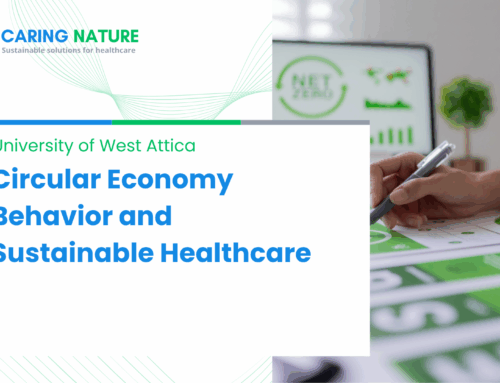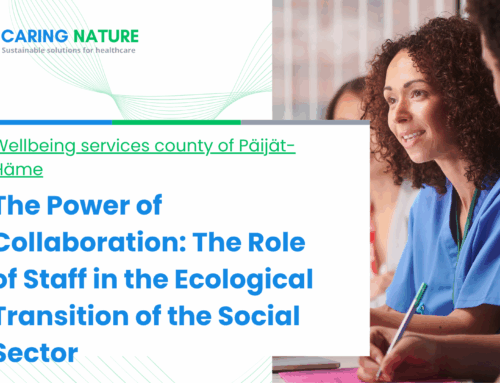Our partner Anastasios Sepetis from the University of West Attica, Greece, recently published an article aimed at exploring the role of organisational behavior to sustainable healthcare in the Greek context.
In the frame of CARING NATURE, partners from the University of West Attica are responsible for the development of the knwoledge-sharing system and the decision-support system (KSS-DSS), a digital tool aimed at informing decisions towards a greener health and care system.
In this context, Anastasios and colleagues conduct research on the environmental impact of the healthcare sector. In particular, their latest article explores the crucial role of organizational behavior in promoting sustainability within the healthcare sector, particularly in Greece.
With healthcare responsible for about 4% of global emissions and significant economic resources, the sector has a major environmental footprint. The COVID-19 pandemic highlighted the need for a shift toward greener practices at all levels—from governments to individual employees. The study emphasizes that healthcare organizations should lead this transition by going beyond legal obligations and fostering a culture of environmental responsibility. It focuses on how leadership, staff engagement, and workplace culture influence the adoption of sustainable practices. Addressing a gap in existing research, the study investigates how Greek hospital management perceives climate change challenges and the role of staff behavior in implementing effective sustainability initiatives.
What are the main findings of this study ?
-
Leadership is crucial, but in Greece, unlike more structured systems like the U.S. Veterans Health Administration (VHA), sustainability success depends on collaborative decision-making and broader stakeholder involvement.
-
Training and education are inconsistent and often ad hoc, limiting staff’s capacity to engage meaningfully in sustainable practices. Structured, continuous training is needed to build green competencies.
-
Effective communication and feedback loops are lacking. Two-way communication is vital to ensure staff input shapes sustainability policies.
-
While healthcare workers are aware of climate change, institutional barriers and lack of resources hinder meaningful action.
-
There is a gap between sustainability awareness and implementation, often due to weak infrastructure and insufficient strategic planning.
-
The study calls for national legislation, clear organizational goals, and regular, inclusive feedback mechanisms to drive green initiatives.
-
Infrastructural investments, such as energy-efficient systems and sustainable procurement, along with transparent communication of progress, are essential for long-term impact.
Read the full article here.






